2022: Topics in LMU Newsroom
27 Dec 2022
The stories that caught the interest of LMU Newsroom readers in 2022.
27 Dec 2022
The stories that caught the interest of LMU Newsroom readers in 2022.
A look back at popular stories from 2022:
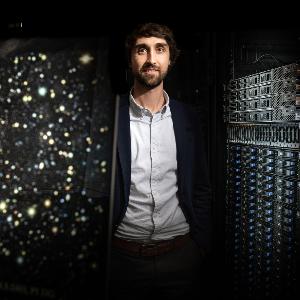
says: “Artificial intelligence is the key to new discoveries in cosmology.” | © LMU
Astrophysicist Daniel Grün uses artificial intelligence to research the influence of dark matter and dark energy on the universe.
Daniel Grün is Chair of Astrophysics, Cosmology, and Artificial Intelligence at LMU. At the start of the year, he took part in the KI Lectures, a virtual series of events held during the winter semester 2021/22. He explained the challenges and opportunities for astronomy presented by the new technological possibilities:
Vast amounts of data are being collected in cosmology through the use of telescopes and state-of-the-art camera technology. “The astronomical data volumes are growing exponentially,” says Daniel Grün. Computers no longer have sufficient power to process all this data and this is setting a limit on astronomical research. However, AI algorithms can be employed to sift through the mountains of data.
Grün draws on data from the Wendelstein Observatory in his research. Part of the Institute of Astronomy and Astrophysics, the telescope has been helping LMU scientists explore the universe in greater detail since 2011.
The LMU professor kindly let us film him on a visit to the Wendelstein Observatory. In the video, he explains how artificial intelligence is used in astronomy and shared his hope that this will reveal something “fundamental”: What pushes the universe apart? And what holds our galaxy together?
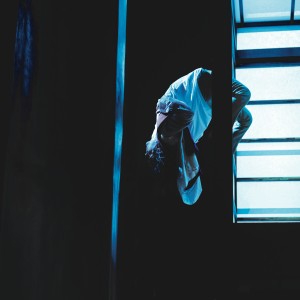
in the theater: Toshiki Okada staged his play ‘The Vacuum Cleaner’ at the Münchner Kammerspiele in 2019. Scene with Thomas Hauser. Photo: Julian Baumann
Hundreds of thousands of people in Japan live in self-imposed isolation. They are called “hikikomori,” which comes from the Japanese word for “withdrawal.”
In the research magazine INSIGHTS, Japanologist Evelyn Schulz explained this phenomenon of social withdrawal, which is widespread in Japan and goes back to the 1980s.
Experts estimate that in Japan alone there are somewhere between half a million and over a million people, mostly men, who withdraw from the world in this way. How many cases go unreported, no one knows.
As a rule, the hikikomori still live with their parents, although they avoid contact with them as well. In Japanese TV movies, explains Evelyn Schulz, a few images is all it takes to evoke the situation for viewers: the closed bedroom door in front of which the mother places the food. “It’s become a set formula.”
Even though scientists now believe that similar phenomena may exist in other countries too, the sheer number of people affected in Japan is astounding. What drives young people into isolation? What is it that makes withdrawal a mass movement? What elements of Japan’s social structure have contributed to it?
These questions intrigued many readers. The article about the hikikomori was one of the most popular in the Newsroom at lmu.de in 2022.
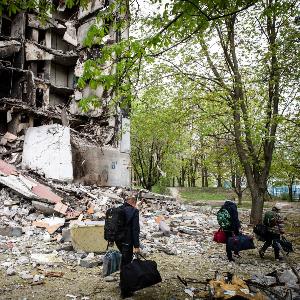
like this one from Kharkiv on 29 April 2022 have prompted outrage and soul-searching about why this is happening. | © IMAGO / ZUMA Wire / Alex Chan / Tsz Yuk_
Since Russia’s attack on Ukraine, we published many interviews with LMU academics on various aspects of the war.
At the start of March 2022, the interviews “
Putin is trying to turn the clock back
” with Martin Schulze Wessel, Chair of History of Eastern Europe and Southeastern Europe, and “
International law abused
” with Christian Walter, Chair of Public International Law and Public Law, generated great interest among LMU Newsroom readers.
Further interviews with experts from various disciplines followed over the ensuing weeks and months, including with Thomas Hanitzsch, Chair and Professor of Communication with a special focus on journalism studies, about the
reporting of the war
. The literary studies perspective was illuminated by Juliane Prade-Weiss, Professor of Comparative Literature with a special focus on Eastern European Literatures, and Riccardo Nicolosi, Chair of Slavic Philology at the Faculty of Languages and Literatures, with their analyses of
Putin’s rhetoric
and of the
discourses around mass violence
.
The effects of the war were discussed by Thomas Ehring, Chair of Clinical Psychology and Psychological Treatment and Head of the Outpatient Treatment Center, who looked at the
psychological impacts
, and Dr. Florian Zabel, geographer in the Hydrology and Remote Sensing research and teaching unit at LMU, who explained the
consequences for global food security
.
Monika Schnitzer, Chair of Comparative Economics at the Faculty of Economics, discussed the economic effects of the war in an
interview
. Meanwhile, her colleague in the economics department Professor Fabian Waldinger elaborated
what the war in Ukraine means for science
.
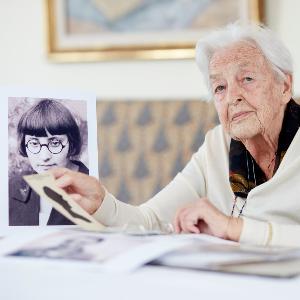
keeps the memory of her aunt alive. | © Stephan Höck
In April 2022, an article appeared in the university magazine MünchnerUni Magazin, about a seminar by Professor Peter Zentel, Chair of Educational Sciences for Intellectual Disabilities including Inclusive Education.
A special needs school was looking for a new name after it had emerged that it was named for a proponent of euthanasia. Peter Zentel brought the school community and university students together to discuss the matter and find a new name. He also invited the students at the special needs school to be involved in the process.
They quickly identified Theolinde Diem as a good candidate for renaming the school. Thanks to the efforts of her niece Lisa Wanninger, a sprightly native of Munich of over ninety years old, the name of Theolinde Diem, who was murdered by the Nazis, has not been forgotten. She has a face; she has a story. Lisa Wanninger, who is also an active member of the relatives’ group for euthanasia victims at the Munich Documentation Centre for the History of National Socialism, wants to rescue the memory of the murder of her aunt from oblivion.
The story moved MUM readers as well as those of the Newsroom, where it was also published. They read how Lisa Wanninger told the schoolchildren about her aunt at a visit to the school. When Theolinde Diem was 16, she began to have epileptic fits. in the spring of 1941, she was transferred to Haar Psychiatric Hospital (Nervenheilanstalt Haar). Soon afterward, Thea was transported to Hartheim, near Linz. “The actual tragedy,” said Lisa Wanninger, “took place there.”
“Why couldn’t Thea be saved?” was one of the questions that Lisa Wanninger was asked by the school students. Her reply: “People had lost all sense of humanity during that period.”
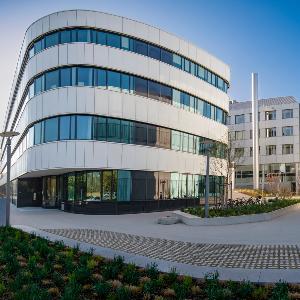
was jointly funded by the federal German government and the Bavarian state government on account of its special scientific merit and national significance. | © LMU
In May 2022, the Institut für Chemische Epigenetik (ICEM) was officially opened. The new building on the Großhadern/Martinsried campus is a facility for scientists carrying out research at the interface between biology and chemistry.
The ICEM researchers are exploring the so-called epigenetic code, which determines which of the genes within the genome are active when. In this way, they obtain insights into how an organism regulates the activity of its genes.
As part of their research into the origins of life, the scientists are investigating how the first building blocks of life could form from inorganic matter on the early Earth.
The new five-story building has a floor area of 3,800 m² with laboratories, offices, and conference rooms.
ICEM stands next to its sister building, the Center for Molecular Biosystems Research (BioSysM), which opened in 2016, at the corner of Würmtal Street and Butenandt Street.
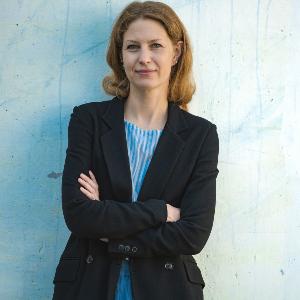
researches how to individually support learning processes.
What factors determine how well we learn? This question is studied by Sarah Hofer, who has been Professor of Teaching-Learning Research at the Chair of Education and Educational Psychology at LMU since April 2022. In an interview to coincide with exam time, she described how to structure learning so that the knowledge actually sticks. And she explained how learning actually works:
“The basic learning mechanism works in the same way for everyone. New knowledge has to find points of reference in your own existing knowledge network. If that happens, it is highly likely that you will retain what you have learned.”
So when you are about to study something, you should start off by considering what you already know about the topic and only then get stuck into the new material.
In the interview, which attracted the interest of many Newsroom readers, Sarah Hofer also pointed out that people can make studying too comfortable for themselves – to their own detriment:
“You only really retain what you have learned if you apply yourself to the content. That is hard work, of course. It is much easier to say, ‘Oh, I’ll just quickly read through the text again’. And that is better than doing nothing. But it would be much more effective to process the text in another way: asking questions about it, finding links to other content, trying to visualize it or talking to a friend about it.”
The tips by the psychology professor also generated a lot of interest in the LinkedIn community.
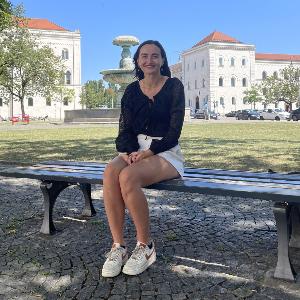
LMU student Miriam Müller received an award for her bachelor’s thesis. | © LMU
To mark Good Teaching Day in July 2022, 15 outstanding teaching and research projects at LMU were chosen for special recognition. Ten research prizes, each worth 1,000 euros, were presented to excellent students. Meanwhile, five teachers who distinguished themselves in their passion for teaching were awarded LMU teaching innovation prizes, each worth 10,000 euros.
Good Teaching Day is designed to promote university-wide discussion about innovative teaching and to facilitate networking between teachers from different disciplines.
Among the winning initiatives and papers was a bachelor’s dissertation by LMU student Miriam Müller. The economics student investigated what effects mentoring programs have on refugees:
“We were given a free choice of subject matter, and I immediately knew that I wanted to tackle a sociopolitical topic,” says Müller. For her, economics is about more than “just” finance. The chance to investigate social contexts was one of the reasons she chose to study economics. (For more on Müller’s story, see the article
Much more than just finance
in the Newsroom.)
Julia Treindl was also recognized on Good Teaching Day. The lecturer and schoolteacher shows students how exciting it can be to delve into the past. For her project seminar “Common Places, Common Times” at the Faculty of History and the Arts, she received an LMU teaching innovation prize.
In the seminar, students developed an interactive, digital map of German-Jewish history. The website is designed for school students from the age of around 15, who can use this exciting tool to discover the diversity of Jewish life in German history and recognize its traces in the present. (For more on this story, see the article
Fascinating diversity in digital format
in the Newsroom.)
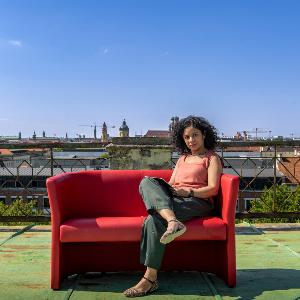
photographed for the Summer Reads story | © LMU
In this summer feature, researchers and students at LMU shared some of their vacation reading. The tips attracted a lot interest among Newsroom readers and in LMU social media channels.
The books chosen included hefty page-turners, outlandish tales, literature about the origins of humanity, and a guide for people who want to become less stressed at work.
Gitta Kutyniok, Chair of Mathematical Foundations of Artificial Intelligence at LMU, recommended Hidden Figures: The Untold Story of the African American Women Who Helped Win the Space Race. The book tells the story of female mathematicians who played a decisive role in the first moon landing but who remained in the background.
The reading tip by Ophelia Deroy also concerns the past, in this case taking us back 12,000 years in human history. The Chair of Philosophy of Mind at LMU recommended The Dawn of Everything. A New History of Humanity by David Wengrow and David Graeber. This book explores how the invention of agriculture influenced the history of humanity while raising the question of how we want to live in the future.
Meanwhile, Management of Hate, recommended by Sahana Udupa, Professor of Media Anthropology at LMU, addresses a pressing issue of our time. The book is based on the observations of the author Nitzan Shoshan, who spent time with young people in East Berlin who have embraced the ideas of racist nationalism – “a sober caution about the sway of xenophobic nationalism,” says Udupa.
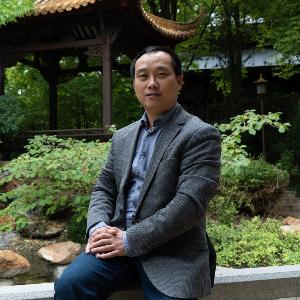
received a prestigious ERC Starting Grant for his research. | © LMU
“How can you live here?” Dr. Liang Emlyn Yang, asks people in the mountainous highlands of southeast Tibet, on research trips to regions that are repeatedly afflicted by flooding and landslides.
The LMU geographer seeks to learn from these people how they cope with environmental risks and what strategies they develop to protect themselves.
For Yang, the question is urgent, as in many regions of the world it is already too late to prevent damage from climate change altogether: “We need to think here and now about how we can adapt – and how we can live better with change,” says Yang, who researches at the “Human-Environment Relations” Research and Teaching Unit in the Department of Geography.
Research and teaching related to climate change were frequent topics in the LMU Newsroom in 2022. Scientists from a wide variety of disciplines at LMU are carrying out research in this area. An
overview of the subject
provides insights into their work.
To coincide with the UN climate conference in November, LMU experts explained some of the terminology that abounds in the current climate debate – from
species shift to planetary health
.
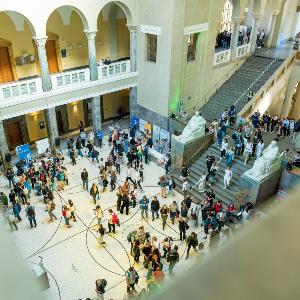
returned to the LMU main building for winter semester 2022/23.
Some 51,000 students were enrolled at LMU for the winter semester 2022/23, of which around 8,500 were freshers.
For the first time in two years, it was possible to hold the traditional welcome event for first-year students in the LMU main building again. New LMU students sought out information at the booths of the LMU institutions taking part in the info fair. The student advisory office stand was very popular, as was the student council stand. Various Munich cultural institutions were present, such as the August Everding Theater Academy, the Gärtnerplatz Theater, the Kunsthalle art gallery, and the Residenz Theater. With music and free drinks on offer, many visitors hung around until the event closed at 7 p.m.
The video with impressions of the semester start and the well-attended welcome event for first-year students on 17 October 2022 made a big splash particularly on Instagram.
For many, however, the preparations for the winter semester began much earlier. A survey of students, staff, and researchers afforded a glimpse behind the scenes and showed the various reasons people had for looking forward to the winter semester.
Direct in-person communication was something all of them were glad to have back. As student advisor Mirjam Eisermann put it: “After the long online period, it’s so refreshing that we can hold workshops and events on site again.”
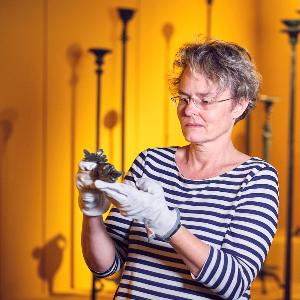
with one of the lamps from Pompeii that was studied by her team. | © LMU / LCproductions
In November 2022, a special exhibition opened in Munich. It shows how people in ancient times saw things. In this way, Professor Ruth Bielfeldt, Chair of Classical Archeology and spokesperson of the Munich Center of Ancient Worlds (MZAW), gives the wider public a chance to learn about the results of her research.
As part of a project funded by the German Research Foundation (DFG), the LMU archeologist investigated the lighting culture in the ancient city of Pompeii. With her team, she researched little known lamps, including many bronze ones – bronze being a virtually neglected material – from the storage vaults of the National Archaeological Museum of Naples. The artifacts were brought to Munich for study and restoration. Employing scientific techniques, the researchers analyzed and digitally simulated various materials, especially bronze, along with their light and shadow effects in order to capture the interactions of light, space, and the human eye.
For the LMU archeologist, the lamps are “key objects” for comprehending the ancient world. Pursuing an “archeology of the senses” approach, Bielfeldt investigates the sensory impressions of people in ancient societies as a way of deepening our understanding of social rituals.
Pompeii, which was buried when Mount Vesuvius erupted, provides archeologists with unique insights into Roman society.
The Forschungsausstellung „Neues Licht aus Pompeji“ is running until 2 April 2023 at the State Collections of Antiquities in Munich. It presents 180 known and completely unknown originals from the Vesuvian cities and employs digital methods to demonstrate how people experienced light back then.
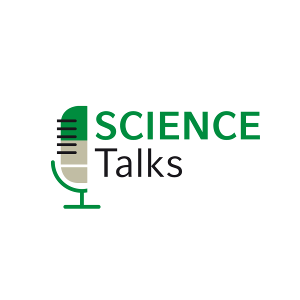
Global crises are presenting science and society with almost unprecedented challenges. In the winter semester 2022/23, LMU launched Science Talks a new format designed to promote public dialog on urgent research topics. Two events of the eight-part series were held in December. The talks are taking place at LMU and being broadcast as a livestream.
At the start of December, the focus was on climate change. Professor Matthias Garschagen, Chair of Anthropogeography at LMU Munich with a focus on human-environment relations, and Professor Elmar Kriegler, Professor for Integrated Assessment of Climate Change at the University of Potsdam, discussed the topic “Science and climate change: the roles of research in combating a global crisis.”
On 20 December, Professor em. Winfried Haunerland, former Chair of Liturgical Studies at the Faculty of Catholic Theology at LMU, and Thomas Bauer, Professor of Islamic and Arabic Studies at the University of Münster, met up to talk about “Science and Faith.”
The moderator of the Science Talks is Professor Oliver Jahraus, LMU Vice President for Teaching and Studies. In an interview to kick off the series (“
We want to explore areas of friction
”), Jahraus spoke about the manifold expectations that science has to deal with today: “The demands being made of science are extremely high, and in its public perception and in the value placed on it by society, the role of science has assumed dimensions which it did not possess a few short years ago.”
“People are looking to science very specifically to come up with solutions to fundamental and everyday problems,” Jahraus continued. “This trend has been apparent since COVID-19 emerged, but now further crises are confronting us. Science is butting up against social discourses, expectations, and even political scenarios, and we must be clear to ourselves and others about what science can do and what’s outside its scope. With Science Talks, we want to explore these boundary lines and the resulting areas of friction.”